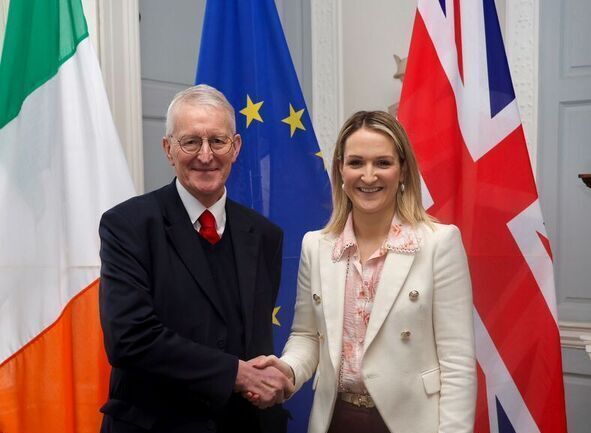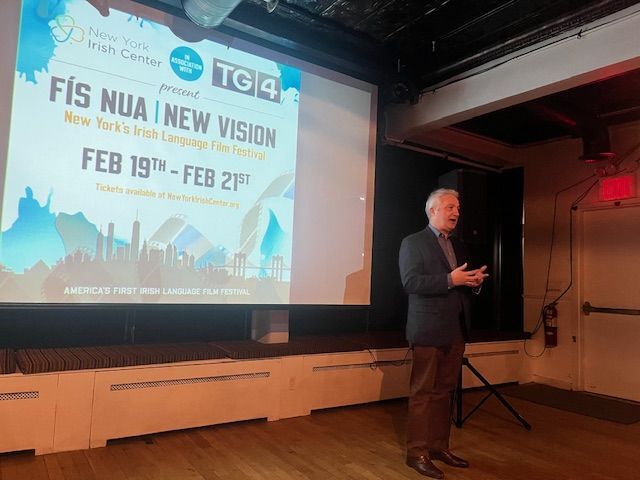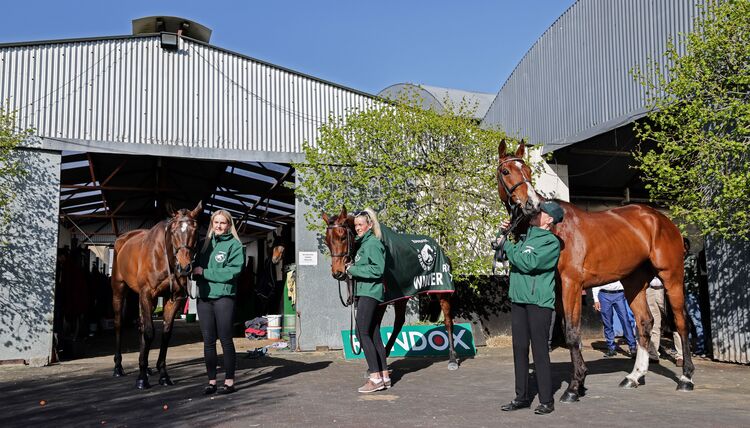When we revert back to the romance of the past, it evokes an eventual disdain for ourselves; not merely for the falsifications and self-deception such grand illusions seek to contrive, but for the oversimplification of historical conflicts whose consequences are no longer pardonable. If communication was so clearly revealed, moral imperatives so understood, political and historic destinies easily pursued, there would be no need for the forums of theatre to decipher the ambiguities of our lives. Brian Friel knew this.
In a departure from Friel’s intention, Irish Repertory Theatre’s latest production of “Translations,” obfuscates obligation and veers off course—to neither moral high ground nor low road, but through some liminal romantic lane—playing through Dec. 3.
Of this production’s many virtues, which borrows its beauty from Friel’s rich language and piercing genius of text, the fault lies not quite in any specific selves, as it does in the stars-and-plough: namely, the production’s misdirection—an inappropriately unambiguous representation of Irish history that doesn’t fit the contours of a modern audience.
Contrary to this production’s charming capitulations, “Translations” is not a story so strictly about cultural erasures, than it is moreover about the story of Ireland: a people at the crossroads of change.
The play is set in 1833 in the fictional town Ballybeg (translated from the Irish “Baile Beag” for “small town”) at a hedge-school where headmaster Hugh (Seán McGinley) and teacher Manus (Owen Campbell) lament a dwindling enrollment, as students opt out of obsolete academic exercises due to poverty, emigration, and those joining revolutionary ranks. The lessons are soon interrupted by the incursion of land surveyors with the British army, led by hometown hero and interpreter Owen (Seth Numrich), alongside a brooding Lieutenant Yolland (Raffi Barsoumian), whose mission is to “translate,” replacing the Irish names of Donegal localities, transposing cultural heritage, and transcribing the Irish geography into one that is unmistakably English.
As a plot point, this play would apparently render an obvious solution—which this production seems to purport—which is to change nothing, embrace the romance, be steadfast and resist. Yet in the words of Friel, through the voice of Owen, “…that would be too simple.” The dialogues that dominate “Translations” are those imbued with moral dilemma; they are for and against modernization, bilingualism, intermarriage, and more poignantly, for and against the residual of colonial entrenchments.
Such poignancies would not be known by observing this production, which under Doug Hughes’s stylized and fabled direction, rewrites the Friel play in broad strokes, as a swooning quasi-melodrama of a tenderhearted, mysterious, and immortally innocent folk crippled into victimhood. In this production’s interpretation, the play’s convoluted reality is evaded.
The most pronounced culprit for this is the lack of cohesion, clarity, and seriousness attributed to character performances.
As the lieutenant mystified by Ireland, with an hibernophile equivalent of the male gaze, Raffi Barsoumian portrays Yolland less with reproachable guile than with a sultry prowl and unending passion, that seem to exempt all development of the role beyond that of a fairytale prince. As Captain Lancey, Rufus Collins’s presence in the role is not merely bunglingly aloof and comically haughty, but whose authority is incapable of being taken seriously altogether, even after it is too late; which, if performed deliberately, is an uncomfortable retrospective of imperial rule.
The buffoonery exemplified by characters Doalty (Owen Laheen), Bridget (Oona Roche), and Jimmy Jack (John Keating) offer performances of Irish stereotypes for better or worse; self-aggrandizing, happy-go-lucky, loveably mischievous, and drunk figments of Friel’s self-effacing commentary. Yet, though the characters themselves may be inept to the encroachments of a world beyond their small town, the larger-than-life performances—Laheen’s boundless showmanship and Roche’s boisterous flare of expression—appear to reside in a play all their own, which does little else but distract from the production in contrast. When Keating delivers his inebriated monologue on endogamy and exogamy, yes, he steals the laugh, but in exchange the audience is cheated of a moment to think, and tribalism becomes the joke we forget.
Of these incongruous performances, there are remarkable exceptions. Seán McGinley’s portrayal of Hugh as the antiquated intellectual asleep on the ramparts of history, emits instances of lopsided acuity, but altogether a resoundingly cherished performance of Athenian wisdom resigned to the inevitable fall; as is Owen Campbell’s wondrous work as Manus, a contemporary Cassandra scarred by deception. Mary Wiseman gives a magnificent performance as Maire, who traverses stoic dissatisfaction, adoring honesty, and crushing forlorn with a disciplined mastery; as does Seth Numrich, whose performance excels unerringly in his part as the charismatic and conflicted center upon which this production is prolonged.
In the role of Sarah, Erin Wilhelmi gives one of the finest performances of the show, through her extraordinarily generated bouts of withdrawal, retreat, restraint, and collapse. Wilhelmi could never quite have better embodied the peculiarity of this production, in its display of a wobbling Irish voice on the American stage: mute, apologetic, and self-betraying.
Perhaps it is this audience’s limited comprehension of Irish pluralism, or perhaps that “Translations,” ought to be performed as a contemporary story rather than classical, which rendered this production ineffectual. The un-ironically pastoral scenery (design by Charlie Corcoran), and the playbill’s condensed outline of Irish history, was not a good sign; nor was this American audience’s inherent sentimentality for rural life, partisan narratives, and unfettered republicanism, for that matter.
There will come a day, as always, when the deafening echoes of romanticized oppression are shattered by the cries of the tragedy thereafter. Amidst this cacophony—the valor of martyrhood and crescendos of passion—reason goes unheard, and the delusions of drama snip away our tethering to reality. In this abyss of judgment, one wonders vainly, why then must we return to the romance?
In the words of Hugh, “to remember everything is a form of madness;” to say nothing is a certain madness as well. To not notice nor acknowledge the road signs of an evolved ethos in Ireland, which sprang from painstakingly converged dialogues of complexity, dissent and reconciliation, borders on a lack of responsibility.
“Translations” runs as part of Irish Rep’s 35th season celebration, The Friel Project. For tickets, visit the Irish Rep's website here.








